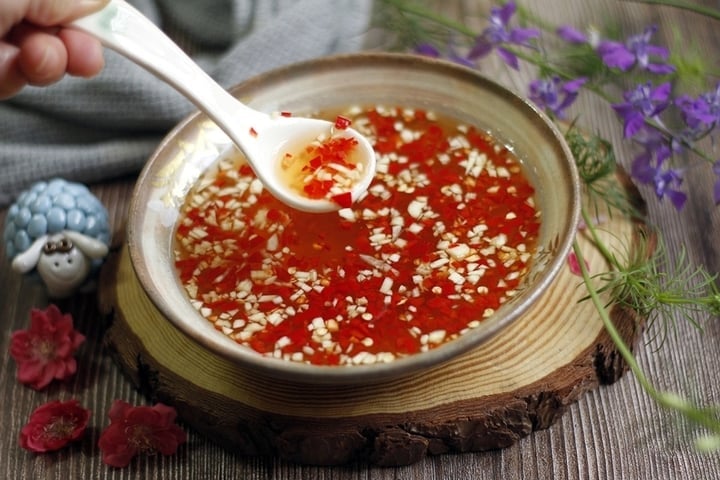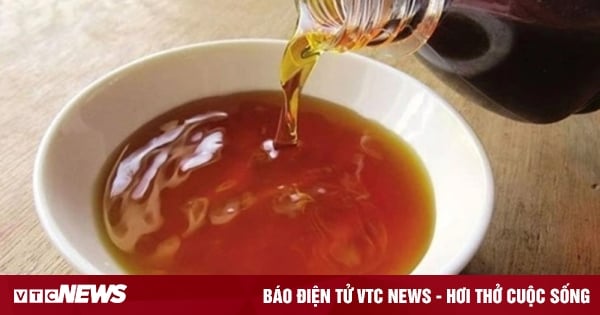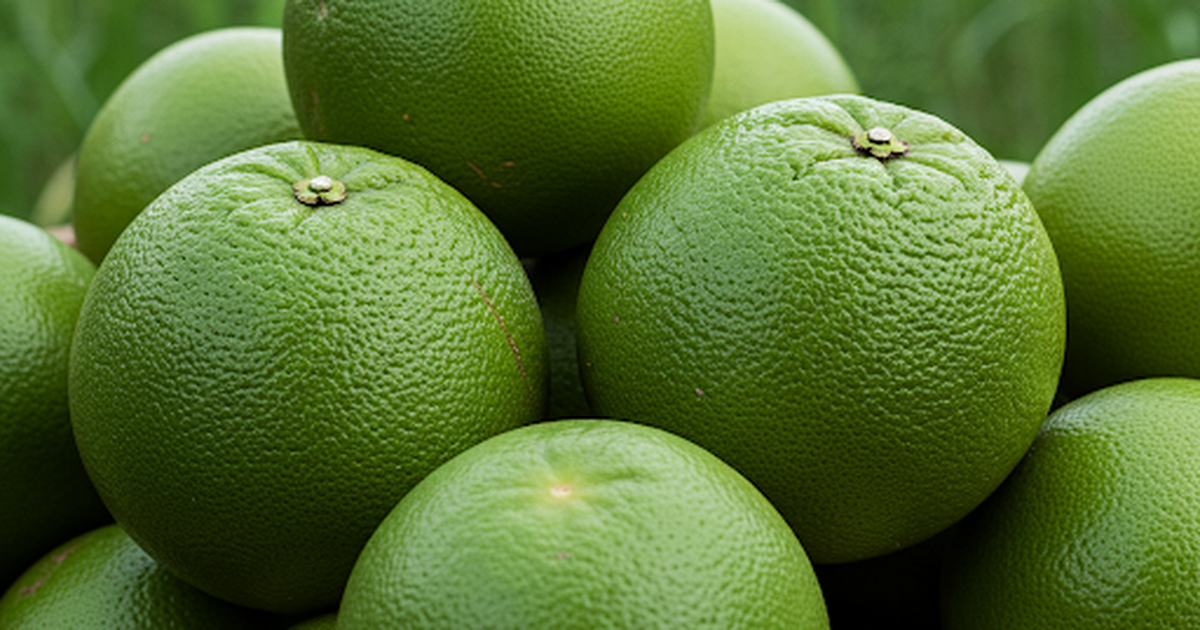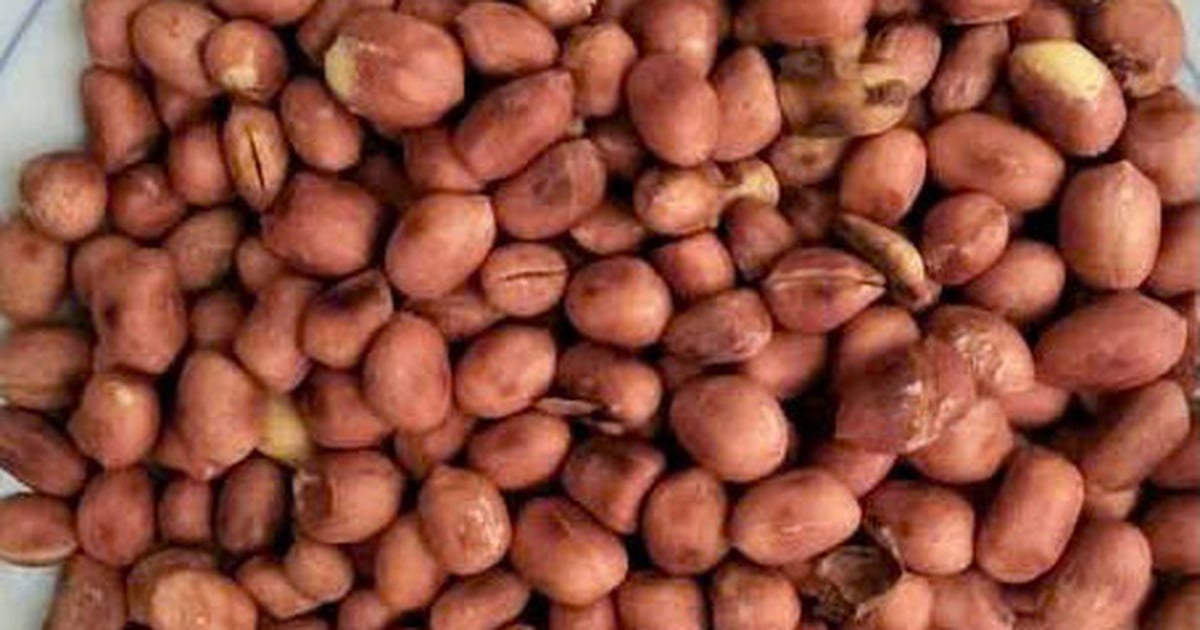In October, culinary website Taste Atlas announced the top 100 best sauces in the world and Vietnam's dipping sauce ranked 22nd with 4.4 stars.
This dipping sauce is usually made from lemon juice or vinegar, sugar, water and fish sauce. To make it more appealing, the dipping sauce also has spices such as chili, garlic, onion, ginger. There are many types of dipping sauces depending on the region as well as the accompanying dishes and are mainly used to dip spring rolls, spring rolls, banh xeo, meat dishes and seafood.
Associate Professor, Dr. Nguyen Thi Lam, former Deputy Director of the National Institute of Nutrition, said that fish sauce is a condiment that has long been associated with the lives of Vietnamese people. This is an indispensable condiment in meals and is also the pride of Vietnamese people. Without fish sauce, the deliciousness of the dish will be lost.
Fish sauce is made from fish and salt, so it has many amino acids. In 100g of fish sauce, there are 35kcal; 5.1g protein; 0.01g lipid; 3.6g glucid; 43mg calcium; 0.78mg iron; 175mg magnesium; 288mg manganese.
Through scientific research, it is found that fish sauce contains 20 types of amino acids, especially 8 types that are essential for the human body to create protein for the body but cannot synthesize these amino acids.

Chili garlic dipping sauce, one of the best dipping sauces in the world. (Illustration photo)
In traditional medicine, fish sauce has a salty, sweet taste, and neutral properties; it enters the spleen, kidney, stomach, and large intestine meridians. Fish sauce benefits qi and blood, nourishes the liver and kidneys, clears blood vessels, is diuretic, and laxative. Fish sauce is used as a spice, appetizer, and digestive aid. It is used in cases of colds, windstroke, stiff limbs, cramps, stiff jaws, exhaustion, constipation, and anemia.
Associate Professor Lam said that fish sauce has many amino acids and some micronutrients but also contains a lot of salt. Using too much fish sauce will lead to the habit of eating salty food. Therefore, you should reduce the saltiness of the fish sauce by diluting it by adding a little lemon, chili, and garlic to reduce the saltiness.
In particular, mixing fish sauce with a little garlic, lemon, and chili will help stimulate the appetite.
Fish sauce has certain nutritional value. However, when using fish sauce, nutritionists note that you should not overuse it or dip it in too much fish sauce. Currently, Vietnamese people eat about 9.5g of salt per day, nearly twice as much as the WHO recommendation. Therefore, to reduce salt intake, you should dip lightly.
The habit of dipping and eating strong flavors causes excess salt, creating a burden on the heart and kidneys; thereby increasing the risk of metabolic disorders related to blood pressure, cardiovascular system, and kidneys.
According to the World Health Organization's recommendation, the daily salt intake for adults is 5g of salt (1 level teaspoon), of which 2g comes from natural foods and 3g comes from spices (salt, MSG, seasoning powder, fish sauce).
Source: https://vtcnews.vn/loai-nuoc-cham-cua-viet-nam-thuoc-top-ngon-nhat-the-gioi-co-gi-dac-biet-ar910436.html


![[Photo] Prime Minister Pham Minh Chinh chairs meeting of Steering Committee for key projects and railway projects](https://vstatic.vietnam.vn/vietnam/resource/IMAGE/2025/4/26/b9534596258a40a29ebd8edcdbd666ab)
![[Photo] Young people line up to receive the special supplement commemorating the 50th anniversary of the Liberation of the South of Nhan Dan Newspaper](https://vstatic.vietnam.vn/vietnam/resource/IMAGE/2025/4/26/9e7e624ae81643eba5f3cdc232cd07a5)


![[Photo] Ho Chi Minh City people's affection for the parade](https://vstatic.vietnam.vn/vietnam/resource/IMAGE/2025/4/26/7fcb6bcae98e46fba1ca063dc570e7e5)
![[Photo] Readers' joy when receiving the supplement commemorating the 50th anniversary of the liberation of the South and national reunification of Nhan Dan Newspaper](https://vstatic.vietnam.vn/vietnam/resource/IMAGE/2025/4/26/283e56713da94988bf608393c0165723)

























































































Comment (0)